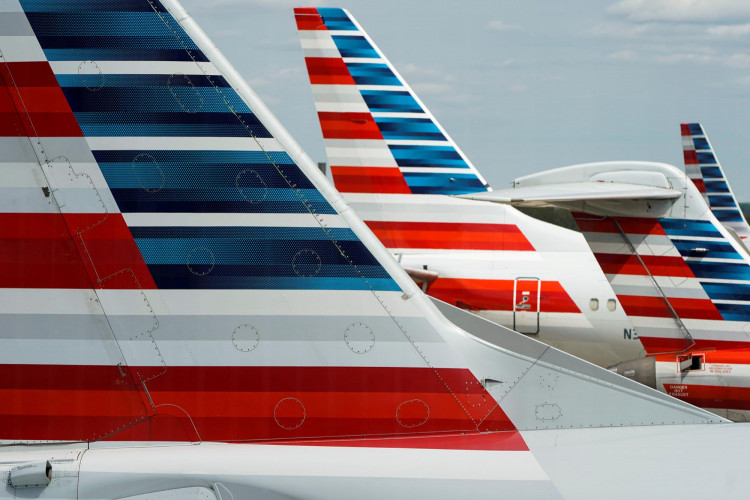In a striking case that has brought American Airlines under intense scrutiny, three Black American passengers have filed a lawsuit alleging "blatant and egregious racial discrimination" after being removed from a flight following a complaint about body odor. The lawsuit, filed on Wednesday in the U.S. District Court for the Eastern District of New York, underscores ongoing concerns about racial bias in the airline industry.
The incident occurred on January 5th, on American Airlines Flight 832 from Phoenix, Arizona, to New York's John F. Kennedy Airport. Eight Black passengers, who did not know each other and were seated in different parts of the plane, were reportedly singled out and asked to leave the aircraft. Emmanuel Jean Joseph, one of the plaintiffs, recounted to the New York Post, "I knew that as soon as I got on that plane, a sea of white faces were going to be looking at me and blaming me for their late flight by an hour."
According to the lawsuit, a white male flight attendant lodged a complaint about an "offensive body odor" which led to the removal of the Black passengers. Jean Joseph, along with fellow passengers Alvin Jackson and Xavier Veal, highlighted in the suit that none of them were specifically accused of having body odor. The removal appeared to be based solely on their race.
A Black American Airlines attendant at the desk seemed to acknowledge the racial undertones of the incident, reportedly telling the passengers, "I do not disagree with you." Despite this, the airline has yet to provide a clear explanation for the removals, stating only that they are investigating the matter and take "all claims of discrimination very seriously."
Attorney Sue Huhta, representing the plaintiffs, emphasized the racial discrimination aspect, saying, "It's almost impossible to find another explanation for this besides their skin color. Especially since they didn't know each other and weren't sitting near each other." Veal, who recorded the event, described the experience as "traumatic, upsetting, scary, humiliating, degrading, and outrageous," reinforcing the claim of racial profiling.
The lawsuit also notes a pattern of racial bias by American Airlines, referencing a 2017 travel advisory issued by the NAACP warning Black travelers about the airline. Although this advisory was lifted in 2018 following the implementation of bias training and a review of the airline's complaint system, the plaintiffs argue that incidents of discrimination have persisted.
The case has garnered significant attention, with various human rights groups and media outlets scrutinizing American Airlines' practices. The airline, in its defense, reiterated its commitment to ensuring positive customer experiences and adherence to core values. "We want our customers to have a positive experience when they fly with us," the spokesperson said, adding that the allegations "do not reflect our core values or our purpose of caring for people."
This lawsuit is the latest in a series of incidents where American Airlines has faced accusations of racial discrimination. Last year, the airline apologized to Black musician David Ryan Harris after he was stopped by an employee at Los Angeles International Airport on suspicion of trafficking his own children, who are biracial. In another instance, U.S. sprinter Sha'Carri Richardson accused the airline of harassment when she was removed from a flight for recording a video.
The plaintiffs' legal team is eager to hear the airline's defense and any justification for the actions taken by the flight crew. In the meantime, the lawsuit seeks to address the broader issue of racial discrimination in the airline industry and ensure accountability for such actions.
As the case proceeds, it will likely shed light on the practices and policies of American Airlines, potentially prompting further reviews and reforms. The outcome could also influence how other airlines handle similar complaints and ensure fair treatment of all passengers, regardless of race.





